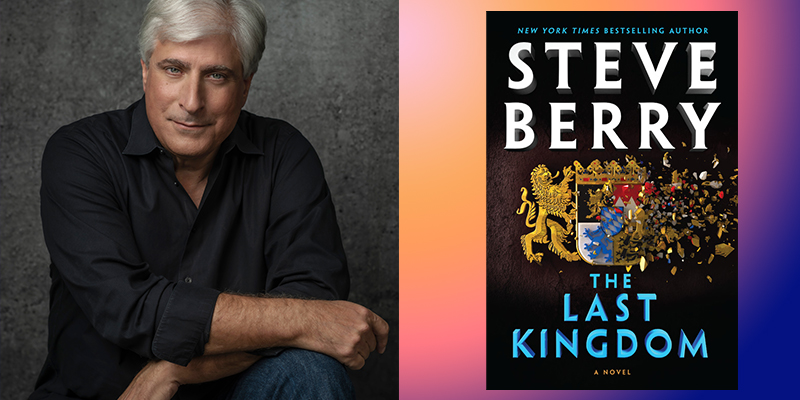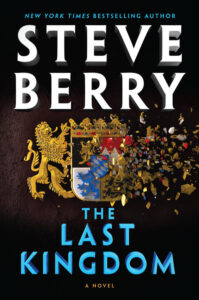Steve Berry is the author of 16 Cotton Malone books, as well as number of thrillers, and runs a historical preservation foundation along with his wife. In Berry’s latest, The Last Kingdom, Bavarian separatists are trying to establish a right to a kingdom based on the mysterious papers of a 19th century king, and it’s up to Berry’s hero Cotton Malone to travel to several fairytale castles in order to find the elusive documents. We caught up with Steve Berry over email to ask about history, research, and his dedication to preservation.
How do you go about making history so exciting?
It’s simple. Tell a good story. People love stories. But, traditionally, history was taught with facts, figures, dates, and places, most of which is boring. But if you tell a good story, making it fun and interesting, folks listen. The primary goal of one of my novels (or any novel for that matter) is to entertain. The secondary goal is to inform and educate. So as long as I remember to entertain first and foremost, I’m okay.
What’s your research process?
I use about 300 to 400 sources for each novel. Mostly physical books that I buy at a huge used bookshop in Jacksonville, Florida called the Chamblin Bookmine. I’ve been doing that for 33 years. I don’t actually read all those books, but I do read large chunks of them and make some meticulous notes that usually stack about four inches high. As I write the novel I use those notes, but no more than about 20% or so of that information will make it into the manuscript. From start to finish the research and writing process takes about 18 months per book.
What’s a weird incident in the past you haven’t had a chance to write about but that you’d love to explore in a future book?
Now if I told you that someone else might write a novel with it before I could. So I hold that tidbit a little close. But know that there are many such oddities from the past, things that are real, things we may know little to nothing about, but things that still matter today in the modern world. Luckily, I’m good for the next few years. But I’m always on the lookout for more. Those mainly come to me from traveling to new places.
Tell us a bit about your support for historical preservation.
Money for historic preservation and conservation is one of the first things to be cut from any budget. My wife, Elizabeth, and I thought it was time to come up with an innovative way for communities to raise money for historic preservation. So we started History Matters. The most popular choice is a 4 hour seminar that we teach where writers, aspiring writers, and readers buy their way in with a contribution. All of the money raised from the workshop goes to the particular historical project that we are there to support. No expenses or appearance fees are ever charged. In fact, we pay those ourselves, which means all of the money goes to the project. So far we’ve taught over 3000 students, raising money from a group of people who might not normally contribute to historical preservation — writers — with us acting as the conduit, providing education and expertise to them that might not normally be available in their area. Other ways History Matters raises money is through meet and greets, speaking engagements, galas, receptions, luncheons, dinners, club meetings, and cocktail parties. We have hosted and participated in many of those. Whatever works for you, is History Matters’ motto. As of now we’ve raised nearly $3 million dollars across 80 projects. You can learn more at www.stevberry.org, and click on the History Matters section.
Who are some of your favorite writers when it comes to making history come to life?
James Michener was my favorite of all time. I loved his stories and his writing. Another favorite was Sharon Kay Penman, who was a master of bringing English history alive. Those were my all time favorites. Sadly, they are both gone so there will be no more of their great works to read.
***


















